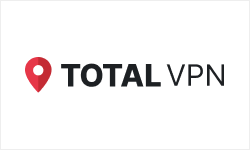In today’s fast-paced and competitive business landscape, managing your finances efficiently is crucial to stay ahead of the game. This is where QuickBooks steps in as a game-changer. Whether you’re a small startup or a well-established enterprise, QuickBooks offers a range of benefits that can revolutionize the way you handle your financial operations.
Keep reading to dive into the top benefits of QuickBooks for businesses. From streamlining workflows to ensuring accurate financial data, QuickBooks empowers you to make informed decisions, improve productivity, and maximize your company’s growth potential. Let’s explore:
QuickBooks: What Is It?
QuickBooks is a popular accounting software developed by Intuit. It is designed to help small and medium-sized businesses manage their financial activities effectively. QuickBooks offers a range of features that streamline tasks such as invoicing, bookkeeping, payroll processing, expense tracking, and generating financial reports.
With QuickBooks, users can create and send professional-looking invoices, track sales and expenses, manage inventory, reconcile bank transactions, and generate various financial statements like profit and loss reports and balance sheets. It also provides tools for tax preparation, allowing users to organize and categorize transactions to simplify tax filing.
QuickBooks: What Is It Used For?
Here are some key applications and uses of QuickBooks:
- Bookkeeping and Accounting:
QuickBooks serves as a central hub for recording and organizing financial transactions. It allows users to track income and expenses, manage accounts receivable and accounts payable, reconcile bank statements, and generate financial reports.
It enables businesses to create professional invoices and send them to clients. It also provides tools for tracking payments, setting up payment reminders, and accepting online payments, making the invoicing and payment process more efficient.
QuickBooks includes payroll software features that simplify the task of calculating employee wages, managing tax withholdings, and generating pay stubs. It can automatically calculate payroll taxes and facilitate direct deposits, helping businesses streamline their payroll processes.
It allows users to track and categorize business expenses, making it easier to monitor spending and allocate expenses to specific projects or departments. It also enables businesses to capture and store receipts digitally, eliminating the need for manual paperwork.
QuickBooks generates a wide range of financial reports, such as profit and loss statements, balance sheets, cash flow statements, and customizable reports. These reports provide businesses with valuable insights into their financial health and performance, aiding in decision-making and strategic planning.
It simplifies tax preparation by organizing financial data and providing tools to categorize transactions appropriately. It can generate reports and summaries required for tax filing, making the process more efficient and accurate.
- Integration with Third-Party Apps:
QuickBooks offers integration with various business applications, such as payment processors, e-commerce platforms, CRM systems, and inventory management tools. This integration allows businesses to sync data across platforms, streamline workflows, and improve overall operational efficiency.
- Accessibility and Collaboration:
You get both desktop and cloud-based versions, allowing users to access their financial data from anywhere. It also facilitates collaboration by enabling multiple users to work on the same file simultaneously, enhancing teamwork and coordination.
Why Should One Use QuickBooks?
- Simplified Financial Management:
QuickBooks simplifies the process of managing finances, even for those without an accounting background. It provides an intuitive and user-friendly interface, making it easier to record transactions, track income and expenses, and reconcile accounts.
- Time Saving and Efficiency:
By automating manual tasks such as data entry, calculations, and report generation, QuickBooks helps save significant time and effort. It streamlines processes like invoicing, payment tracking, and payroll management, allowing businesses to focus on core operations.
QuickBooks reduces the risk of human error in financial calculations and data entry. It performs automatic calculations, ensuring accuracy in financial reports, tax filings, and payroll processing. This promotes reliable financial data and minimizes the chance of mistakes that can lead to costly errors.
- Enhanced Cash Flow Management:
It provides tools to track and manage invoices, payments, and accounts receivable. It also offers features like payment reminders and online payment acceptance, helping businesses get paid faster and improve cash flow management.
- Better Financial Decision-Making:
QuickBooks generates a variety of financial reports, such as profit and loss statements, balance sheets, and cash flow statements. These reports provide a clear snapshot of the business’s financial health, enabling informed decision-making and identifying trends and areas for improvement.
- Tax Preparation Made Easy:
It simplifies tax preparation by organizing financial data and generating reports required for tax filing. It tracks deductible expenses, calculates taxes automatically, and provides a clear audit trail, facilitating smooth interactions with tax professionals and reducing tax-related stress.
- Scalability and Flexibility:
You get different versions and plans to accommodate businesses of all sizes and industries. Whether you’re a freelancer, a small business owner, or a growing enterprise, QuickBooks can scale with your needs and adapt to your specific requirements.
- Integration with Third-Party Applications:
QuickBooks integrates with numerous business tools and apps, including payment processors, CRM systems, inventory management software, and more. This integration enables seamless data syncing and enhances the overall efficiency of business operations.
QuickBooks provides extensive support resources, including user guides, tutorials, webinars, and a dedicated support team. Users can access a vast knowledge base and community forums to find answers to their questions and troubleshoot issues.
It adheres to accounting standards and tax regulations, ensuring compliance with financial reporting requirements. It also implements robust security measures to protect sensitive financial data, reducing the risk of unauthorized access or data breaches.
What Are The Primary Benefits Of QuickBooks For Business?
QuickBooks Online offers a variety of pricing plans, making it accessible and affordable for businesses of all sizes. The pricing is flexible, allowing businesses to choose a plan that aligns with their specific needs and budget. This ensures that even small businesses can benefit from the powerful features and functionality of QuickBooks without breaking the bank.
QuickBooks Online provides a comprehensive set of features to manage various aspects of business finances. It includes tools for invoicing, expense tracking, bank reconciliation, payroll management, tax preparation, financial reporting, and more. These features streamline financial tasks, save time, and provide businesses with the necessary tools to effectively manage their financial operations.
- Integration with Other Finance Tools:
QuickBooks Online integrates with numerous third-party finance tools and applications, allowing businesses to sync data seamlessly. It can integrate with payment processors, point-of-sale systems, CRM platforms, inventory management software, and more. This integration eliminates the need for manual data entry, reduces errors, and improves overall efficiency by ensuring data consistency across different systems.
QuickBooks Online is designed with user-friendliness in mind. Its intuitive interface makes it easy for business owners, bookkeepers, and accountants to navigate and perform various financial tasks. The software provides step-by-step guidance, clear prompts, and simple workflows, enabling users with limited accounting knowledge to manage their finances effectively.
- Popularity Among Professionals:
QuickBooks Online has gained popularity among bookkeepers, accountants, and finance firms. This widespread adoption means that finding professionals familiar with QuickBooks is easier, whether for hiring in-house accounting staff or seeking external accounting services. The popularity of QuickBooks also results in a strong support network, robust community forums, and a wide range of training resources available to users.
QuickBooks Online stores financial records in the cloud, offering numerous advantages. Cloud storage ensures that data is securely backed up and accessible from any device with an internet connection. It allows for real-time collaboration between team members and accountants, facilitating efficient communication and seamless sharing of financial information.
Cloud-based bookkeeping also eliminates the need for manual backups and provides peace of mind in case of system failures or disasters. These benefits combine to provide businesses with a robust accounting solution that improves financial management, saves time, enhances collaboration, and ultimately contributes to the overall success of the business.
What Are The Benefits Of QuickBooks For Accountants?
QuickBooks offers several benefits specifically tailored for accountants, making it a popular choice among accounting professionals. Here’s a detailed explanation of the benefits of QuickBooks for accountants:
- Efficient and Streamlined Workflow:
QuickBooks streamlines the accounting workflow by automating manual tasks and providing a centralized platform for managing financial data. It simplifies tasks such as data entry, bank reconciliation, and financial reporting, allowing accountants to work more efficiently and effectively.
- Accurate and Reliable Financial Data:
QuickBooks ensures the accuracy and reliability of financial data. It performs automatic calculations, reducing the risk of human errors in calculations and data entry. The software also provides built-in checks and balances, helping accountants identify discrepancies and resolve issues promptly.
[Related: How To Print Checks Online In QuickBooks]
QuickBooks offers time-saving features that enhance productivity for accountants. Features like automated bank feeds, transaction categorization, and rule-based transaction matching expedite the process of reconciling accounts. Additionally, QuickBooks generates financial reports with a few clicks, eliminating the need for manual compilation and formatting.
- Simplified Tax Preparation:
QuickBooks simplifies tax preparation for accountants. It organizes financial data in a format that aligns with tax requirements, making it easier to generate the necessary reports and documentation for tax filing. QuickBooks also integrates with popular tax software, further streamlining the tax preparation process.
- Collaboration with Clients:
QuickBooks facilitates collaboration between accountants and their clients. The cloud-based nature of QuickBooks allows accountants to access their clients’ financial data remotely. This enables real-time collaboration, eliminating the need for physical document exchange and promoting efficient communication between accountants and their clients.
- Client Management and Scalability:
QuickBooks provides features to manage multiple clients efficiently. Accountants can set up separate company files for each client, ensuring data privacy and organization. The software also offers scalability, allowing accountants to easily add new clients and manage their financial information within a centralized system.
- Integration with Accounting Tools and Systems:
QuickBooks integrates with various accounting tools and systems, enhancing its functionality for accountants. It can sync with popular software like Excel, tax preparation software, and practice management systems, streamlining data exchange and reducing duplicate data entry. This integration improves efficiency and eliminates the need for manual data transfer.
- Access to Training and Support Resources:
QuickBooks offers accountants access to extensive training and support resources. Accountants can access webinars, tutorials, and online training courses to enhance their knowledge and skills. The QuickBooks support team is also available to address technical issues and provide guidance when needed.
- Security and Data Protection:
QuickBooks prioritizes data security and protection. The software employs industry-standard encryption protocols to safeguard financial data. QuickBooks also performs automatic data backups, ensuring that critical information is not lost in case of system failures or data corruption.
QuickBooks: It Is Suitable For Which Industries?
QuickBooks is a versatile accounting software that can be beneficial for a wide range of industries. While it caters to businesses of all sizes, its features and functionality make it particularly suitable for the following industries:
QuickBooks helps restaurants manage their finances by tracking expenses, running payroll for employees, managing inventory to ensure stock availability, and even setting up a Point of Sale (POS) system for seamless transactions and sales tracking.
QuickBooks is designed to meet the needs of construction companies. It simplifies managing job costs, tracking time for projects, automating accounting tasks like invoicing and bill payments, and generating reports to analyze project profitability and overall financial performance.
QuickBooks provides tools for retail businesses to stay on top of their inventory levels, manage sales transactions, generate purchase orders, and track receipts. It also offers powerful reporting capabilities that provide insights into the store’s performance, helping retailers make informed decisions.
QuickBooks offers user-friendly features for churches, allowing them to track and manage donations, streamline financial reporting, and maintain accurate books for tax purposes. It simplifies fund accounting and provides transparency in financial management for churches and religious organizations.
QuickBooks understands the unique needs of nonprofits. It enables nonprofits to track donations, categorize revenue and expenditures by fund or program, generate reports specific to nonprofit financial reporting, and streamline the overall financial management process for nonprofit organizations.
QuickBooks caters to the accounting needs of law firms. It automates accounting tasks, tracks time by case, client, or pro bono work, and integrates with third-party apps that are popular in the legal industry. This helps law firms streamline their financial processes and ensure accurate and efficient accounting.
QuickBooks provides professionals such as architects and consultants with real-time insights into their finances. It enables tracking of project profitability, automates workflows for streamlined financial operations, and helps professionals manage their invoicing and billing processes efficiently.
- Manufacturing & Wholesale:
QuickBooks offers specific features for manufacturing and wholesale businesses. It lets one manage overall sales and manufacturing operations from a single dashboard, offers enhanced features like Pick, Pack, and Ship, Landed Cost calculation, and enables mobile inventory barcode scanning for improved inventory management.
[Relaled: Best Alternatives to QuickBooks Accounting Software]
Final Words
In conclusion, QuickBooks offers a wide range of benefits for businesses across various industries. It simplifies financial management, saves time, ensures accuracy in financial data, enhances cash flow management, facilitates better decision-making, simplifies tax preparation, promotes scalability and flexibility, integrates with third-party applications, provides access to training and support resources, and prioritizes data security.
In short, QuickBooks can streamline your financial operations, improve efficiency, and contribute to the overall success and growth of your business. Embrace QuickBooks and unlock its potential for financial success today!

![Unlocking Ahrefs Premium: Get Ahrefs Premium Accounts [100% Free]](https://s44815.pcdn.co/wp-content/uploads/2023/10/Ahrefs-Free-Premium-accounts-2023-330x250.webp)



















